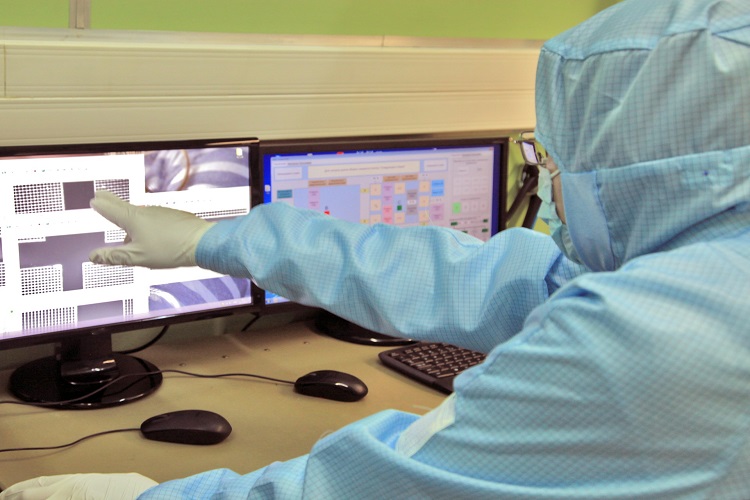A cleanroom is an enclosed space or controlled environment designed to maintain a minimal quantity or concentration of airborne particulates. Typically located in an isolated area of a facility, a cleanroom helps prevent contamination from dust, debris, microorganisms, aerosol, or other pollutants. Cleanrooms use devices such as high-efficiency particulate air (HEPA) or ultra-low particulate air (ULPA) filters to trap and remove contaminants. Each engineered space may also use processes like controlled airflow and pressurization to force dirty air out of vents or registers so that it does not pollute the room. Cleanrooms are crucial to industries in which maintaining a high degree of sanitation and cleanliness is imperative to product quality, functionality, and safety. A look at three types of businesses that require cleanrooms can provide insight into specialized production and help potential leaders comply with essential standards of hygiene.
Table of Contents
Medical Equipment or Healthcare Facilities
The healthcare industry requires cleanrooms for applications such as hospital research, pharmaceutical production, and medical device assembly. Within hospitals, cleanrooms provide sterile environments for surgery or operation suites. The sterility of cleanrooms is also imperative for burn units and blood infusion centers. Some hospitals have also implemented cleanrooms in emergency wards or patient-isolated areas. The goal of cleanrooms within hospitals is to create an antimicrobial environment that minimizes the risk of airborne biohazards. In the pharmaceutical sector, cleanrooms are vital for the safe creation of vaccines and medications. In fact, the Food and Drug Administration (FDA) provides tiered standards for disinfecting cleanrooms to prevent cross-contamination during product development. Similarly, medical equipment assembly requires cleanrooms to decrease the risk of patient infection from exposure to germs or microbes.
Food Manufacturing
Millions of people eat processed food each day. The food industry relies on cleanrooms to ensure the safe packaging of consumables ranging from grains to meat and dairy. Cleanrooms keep the manufacturing process hygienic to ensure that contaminants like bacteria, fungi, germs, or mold cannot develop or grow in packaged foods. This lowers the risk of foodborne illnesses. Due to the prevalence of food allergies, cleanrooms are also critical for helping prevent cross-contamination of common allergens like eggs or tree nuts. Another benefit of using a cleanroom is that it provides an aseptic environment that helps ensure a longer shelf life once the product packaging is complete.
Electronic Part Production
Cleanrooms are ideal for manufacturing products that use sensitive or high-tech components like the electronics industry. Contaminants like dust can affect static levels and quickly damage electronics at the most crucial stages of production. Pollutants can also have a negative impact on the functionality of microchips and various types of nanotechnology. Cleanrooms offer a controlled environment that allows engineers to create and assemble electronic parts with precision. Because of the regulated environment, these rooms also provide additional safety measures that help reduce hazards like electric shock. This can result in a more secure and productive work environment for all professionals involved.
Cleanrooms serve a crucial purpose in a range of distinctive industries. The common denominator is that a cleanroom constitutes a special enclosure that helps keep the production of the business secure and hygienic.

